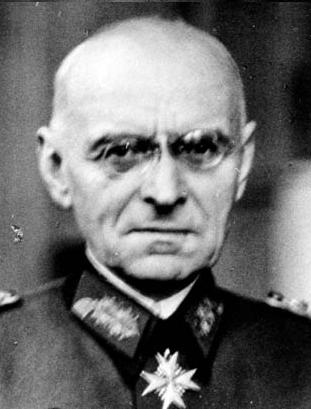Alexander von Falkenhausen
From Kaiserreich
Alexander Ernst Alfred Hermann von Falkenhausen (born in October, 29 1878 at Gut Blumenthal, Germany, is a German general and colonial administrator. He is the second and current Governor General of the Allgemeine Ostasiatische Gesellschaft since 1932.
Contents |
Biography
Early life
He is related to Ludwig von Falkenhausen, who was the governor-general of Belgium (Now Flanders-Wallonia) during the German occupation, from 1917 until 1918, during theWeltkrieg.
Born in Silesia, Falkenhausen begun his military career at 12 by entering the Kadettenanstalt at Breslau. He then served under Paul von Hindenburg in the 91th Infantry Regiment, but soon get bored and even considered joining the US Army to participate to the Spanish-American War. He was sent in China during the Boxer Rebellion, and at his return in Germany, married Paul von Wedderkop, daughter of Hausmarschalls Julius von Wedderkop. Named in the Great General Staff in Berlin, he was then sent in Japan as a military attaché until the beginning of the Weltkrieg.
After service in various armies in Western and Eastern front, he was sent on the Ottoman Army. Serving in Caucasus and in Palestine, where he distinguished in the reconquest of the region in the last years of the Weltkrieg, he received the highest Prussian award, the Pour le Mérite. After the war, he was named aide of General Hans von Seeckt. He then refused the post of head of the Dresden Infantry School to follow him during the 1926 German Intervention in China. Commanding himself his troops in battle, von Falkenhausen was wounded during the battle of Canton, but was able to coordinate German assaults during the battle of Chongqing.
Colonial duty in China
After the end of the German intervention, Falkenhausen decided to stay in China, persuaded that his fate was waiting for him there. First assuming the military governorship of Canton, he was named Vice-Governor-General and Commander-in-Chief of the German colonial troops with the establishment of the Allgemeine Ostasiatische Gesellschaft on 1927. As von Seeckt's right-hand man, Falkenhausen was determinant in the pacification of southern China, the reinforcement of the German-controlled Qing Empire and the training of the Native armies of the AOG. Despite being successful in many aspects of the German pacification, Falkenhausen was unsuccessful against the growth of the Shangqing Tianguo. In 1932, after von Seeckt was recalled to Germany, Falkenhausen was naturally chosen by the Board of Directors as the new Governor-General.
Falkenhausen's achievements as Governor-General were not different from the ones he had already made as a subordinate, even he encouraged the participation of Chinese collaborators to his government and unsuccessfully tried to warn his superiors about the threat of Japanese expansionism in the region. Another aborted project during his mandate was to ask the incorporation of either Hainan Island or Indochina to his authority, that was refused by his superiors in Berlin, fearing a dictatorial and colonial rule such as Göring's in Mittelafrika.
Alexander von Falkenhausen's government, 1932-...
Governor-General and Chief of Staff of the German Colonial Forces: Alexander von Falkenhausen
Vice-Governor-General and Commander-in-Chief of the Colonial Ground Forces: Max Hermann Bauer
Secretary for Relations with the German Empire: He Fengshang
Secretary for Economic Relations with Germany: John Rabe
Secretary for Management of Chinese resources: K'ung Hsiang-hsi
Secretary for Internal Security: Lei Zhong
Secretary for German-Chinese Cooperation: Wang Jingwei
Secretary for Special Intelligence: Li Jishen
Commander-in-Chief of the Colonial Navy: Hellmuth von Mucke
Commander-in-Chief of the Colonial Air Force: Gunther Plüschow

